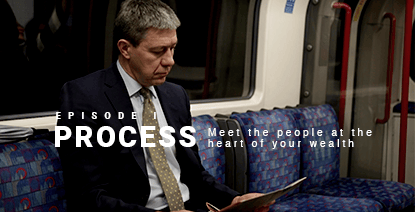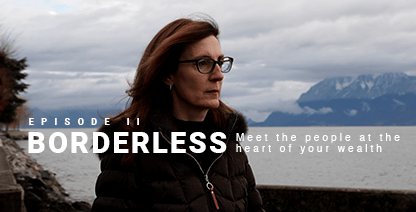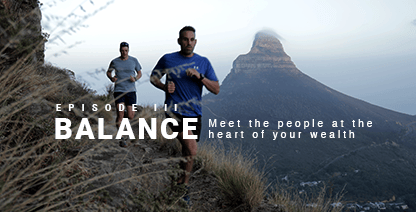Get Focus insights straight to your inbox
The purpose of this letter is to address the reasons behind recent extraordinary asset price moves over the last few weeks, namely Covid-19, the novel strain of flu that originated in the People’s Republic of China that now appears to be established in the wider world and the recent collapse of the oil price.
We believe that in this interconnected world, with media transfixed by the above issues, the next few weeks may prove testing to our peace of mind.
We recognise that in times such as these, emotion often trumps rational decision-making behaviour. It’s essential to guard against knee-jerk reactions, which have been proven to undermine long-term investment outcomes. Leading psychologist and author Daniel Kahneman has highlighted how the pain of losing is psychologically about twice as powerful as the pleasure of gaining. We therefore encourage our clients to be conscious of succumbing to these emotional drivers, as hard as it may be.
A rising number of cases globally will be the focus of attention, with an unsettling new vocabulary (pandemic) becoming common currency. Financial markets, driven partly by emotion, are likely to continue to be susceptible to bouts of volatility until the spread of the virus is contained and its effects upon economic growth prospects properly assessed.
On the oil front, persistently low prices, while a boon to consumers, are rattling corporate debt markets in the US given the scale of exposure to sub investment grade shale oil producers.
The economic impact of COVID-19
Covid-19 is now pandemic and central banks and governments around the world have responded with stimulus programmes.
As yet, it is difficult to estimate the impact on global growth but the high frequency indicators in China point to a steep drop in activity and subsequent gradual recovery, with associated disruptions for companies around the world that have supply chains running through China.
The OECD estimates that the Covid-19 outbreak and associated quarantines may knock half a percentage point off global growth this year as a base case, but with the possibility of a knock to global growth of as much as 1.4 percentage points, should we see a scenario of broad contagion.
Tourism is already taking a heavy hit. High-frequency indicators show a month on month decline in global tourism activity that has only been seen once since 2009. Commentary from airlines suggest it may get worse before it gets better. According to OECD data, there are 12 countries where tourism contributes more than 5% of GDP. In both Portugal and Spain, it contributes more than 10%.
1.4%
3%
10%
COVID-19 in comparison to other outbreaks
COVID-19 is serious but appears to be materially less mortal than initially feared - probably below 3% in developed world healthcare settings compared to around 0.2% for seasonal 'flu'. For reference, SARS (Severe Acute Respiratory Syndrome in 2003) and MERS (Middle Eastern Respiratory Syndrome in 2012) had 10% and 30% mortality rates respectively.
An additional sense of proportion can be gained from putting the current outbreak, having seen around 115,000 infections and 4,000 deaths at the time of writing, in the context of around one billion people each year catching influenza globally, with between 290,000 and 650,000 fatalities, depending on the severity of the strain.
The response of the governing authorities and the medical profession gives grounds for optimism. The outbreak in China is now subsiding but the stealthily infectious nature of the virus (asymptomatic carriers can pass it on) means that the outbreak is now rapidly becoming global. The lessons learned in China will help as new clusters of infection are identified.
Given what we have seen during previous epidemics, markets are unlikely to start looking through the slowdown in activity until the daily number of new cases outside China starts to decline.
Oil producers to tap cash reserves and debt
On the oil front, Saudi Arabia deciding to open the taps has rollicked global markets. While the cost of production in Saudi Arabia is extraordinarily low (below $10/barrels out of existing wells), the Saudi government has grown used to the profits from its oil fields funding its fiscus.
The Saudi government needs an oil price of around $85/barrel to balance its budget. Russia’s fiscal breakeven is around $50/barrel, with commercial producers in the US requiring a similar amount.
At spot prices, each country is producing below its breakeven rates and will be tapping cash reserves and/or debt markets. Both Saudi Arabia and Russia can currently access debt markets relatively cheaply, but the countdown has started on how long spot prices can be maintained.
In the meantime, shale producers will come under increasing pressure, with increasing concerns about the quality of their debt.
Meet Investec's Global Investment Strategy Group
Investec Wealth & Investment's risk score
Although what we know thus far has not required us to change our medium term risk score, we are certainly not complacent. Our Global Investment Strategy process is always on the lookout for icebergs, with the possibility of pandemic being one that we have long recognised as requiring close monitoring.
Recent stock market falls have reflected the dawning realisation that whatever its pathology, the institutional, political and personal imperative will be to take actions that err on the side of caution, at the expense of growth, until the risks subside. The impact on the global economy and corporate earnings could be material, even if short-lived.
The foundations of the world economy are strong, with consumers, corporations and the financial system all in robust positions to absorb the shock. Furthermore, governments and financial authorities are also fully engaged in offsetting any impact that containment measures might have.
We will continually test our assumptions on the current situation, but hope that the real comfort that our clients will take is not from our judgement at any given time, but from the strengths of the three key components of our service – our disciplined investment process, time-tested portfolio construction and the experience and expertise of our people.
We believe that these strengths, in combination with the personal relationships that are the foundation of our business, will continue to enable us to chart the right investment course, however stormy the seas may become.










